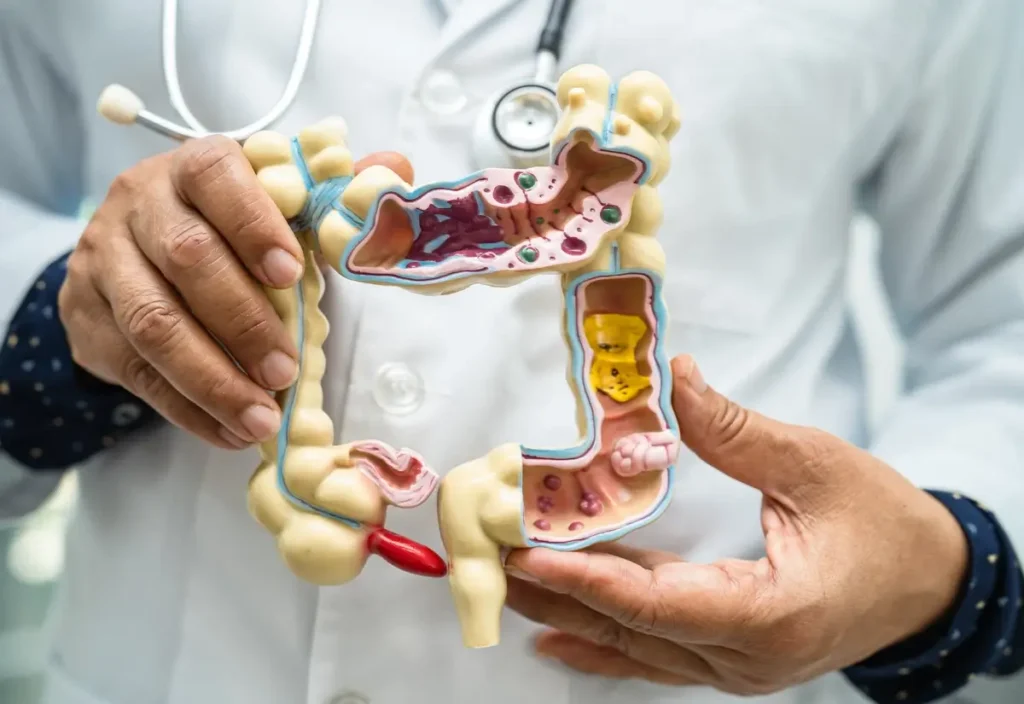Gut Health: Symptoms of an Unhealthy Gut and Getting Treatment
Jan 09

Your digestive system contains an intricate ecosystem of trillions of microorganisms, including beneficial bacteria, fungi, and viruses. These microscopic helpers do more than just digest food – they support your immune system, influence your mood, and affect your overall wellbeing. As medical research advances, scientists continue to uncover new connections between gut health and various medical conditions, from autoimmune disorders to mental health challenges.
Understanding Your Digestive System
Your digestive system forms a complex network that processes everything you eat and drink. This intricate system stretches from your mouth to your colon, involving multiple organs that work together to maintain your health. Understanding how this system works helps explain why gut health affects your entire body’s wellbeing. Recent research shows that proper digestive function influences everything from your immune system to your mental health.

The Microbiome’s Role
The gut microbiome contains trillions of microorganisms working in harmony. These beneficial bacteria help break down food, produce essential vitamins, and protect against harmful invaders. Scientists have identified thousands of different bacterial species in healthy digestive systems. Each species serves specific functions, from helping digest fiber to producing important nutrients your body needs.
Your gut bacteria create vital compounds that affect your whole body. These include short-chain fatty acids that reduce inflammation and support immune function. The microbiome also produces neurotransmitters like serotonin that influence your mood and sleep patterns. A diverse and balanced microbiome helps maintain the protective barrier between your gut and bloodstream.
The Gut-Brain Connection
Modern science reveals a fascinating two-way communication system between your digestive tract and brain. This connection explains why you feel butterflies in your stomach when nervous or lose your appetite during stress. The gut-brain axis, as scientists call it, involves complex neural networks, hormone signals, and immune system responses. Understanding this connection helps explain why digestive health so strongly influences mental well-being and cognitive function.

Mental Health Impact
Your gut produces most of your body’s serotonin, a key chemical for mood regulation. Poor gut health often accompanies anxiety and depression. Research shows that improving digestive health can enhance mental wellbeing. The gut microbiome influences stress responses, emotional processing, and overall mental clarity.
Chronic stress significantly affects gut function. It can alter gut bacteria composition and trigger inflammation. This creates a cycle where poor gut health increases stress sensitivity, which further impacts digestive function. Breaking this cycle often requires addressing both mental and digestive health.
Immune System and Gut Health

Your digestive system houses approximately 70% of your immune system cells. This concentration of immune tissue makes your gut a crucial defender against disease and infection. The relationship between gut bacteria and immune function starts at birth and continues throughout life. A healthy gut microbiome trains your immune system to recognize friends from foes, preventing both infections and autoimmune responses.
Inflammation and Disease Prevention
Chronic inflammation often begins in the gut. When your digestive system functions properly, it maintains a strong barrier between gut contents and your bloodstream. Damage to this barrier can trigger system-wide inflammation, leading to various health problems. Your gut bacteria play a crucial role in maintaining this barrier and regulating inflammatory responses.
Many autoimmune conditions show strong connections to gut health. Conditions like rheumatoid arthritis, psoriasis, and inflammatory bowel disease often improve with better gut health. Understanding these connections helps healthcare providers develop more effective treatment approaches that address both symptoms and underlying causes.
Diet and Nutrition Impact
Food choices directly influence your gut microbiome composition. Every meal either supports or challenges your digestive health. A diet rich in whole, unprocessed foods provides the nutrients your gut bacteria need to thrive. Conversely, processed foods, excess sugar, and artificial additives can harm beneficial bacteria and promote inflammation.

Building Blocks of Gut Health
Complex carbohydrates from vegetables, fruits, and whole grains feed beneficial gut bacteria. These foods contain fiber and resistant starches that help maintain a diverse microbiome. Your gut bacteria ferment these compounds into short-chain fatty acids, which reduce inflammation and support overall health.
Protein sources matter for gut health too. Lean meats, fish, and plant-based proteins provide essential amino acids without excessive saturated fats that can promote inflammation. Healthy fats, particularly omega-3 fatty acids found in fish and certain plant oils, help maintain gut barrier function and reduce inflammation.
Probiotic and Prebiotic Foods
Fermented foods naturally contain beneficial bacteria. Yogurt, kefir, sauerkraut, and kimchi add diverse probiotic strains to your gut microbiome. These foods help maintain healthy bacterial populations and support digestive function.
Prebiotic foods feed your existing gut bacteria. Garlic, onions, bananas, and asparagus contain compounds that beneficial bacteria use for growth. Including both probiotic and prebiotic foods in your diet supports optimal gut health.
Common Digestive Problems
Digestive issues affect many people. Understanding common problems helps identify when to seek medical care. Some issues resolve with lifestyle changes, while others require professional treatment. Early intervention often leads to better outcomes.

Understanding IBS and IBD
Irritable Bowel Syndrome (IBS) causes various digestive symptoms. These include abdominal pain, bloating, and irregular bowel movements. Stress management and dietary changes often help manage IBS symptoms. Working with healthcare providers helps develop effective treatment plans.
Inflammatory Bowel Disease (IBD) differs from IBS. Conditions like Crohn’s disease and ulcerative colitis cause inflammation in the digestive tract. These conditions require medical treatment and ongoing monitoring. Diet modifications support medical treatments for IBD.
Treatment Approaches
Modern gut health treatment combines various approaches. Healthcare providers develop personalized plans based on individual symptoms and needs. Treatment often includes dietary changes, stress management, and sometimes medication.
Comprehensive Care Strategies
Effective treatment addresses multiple aspects of gut health. This includes:
- Identifying and removing trigger foods
- Adding beneficial foods and supplements
- Managing stress levels
- Improving sleep quality
- Regular physical activity
- Medical interventions when needed
Healthcare providers monitor progress and adjust treatments as needed. Regular communication helps optimize treatment outcomes.
Getting Help at HealthCore Clinic

HealthCore Clinic serves Wichita and surrounding Kansas communities with complete gut health care. Our medical staff at the East Wichita location understands digestive health issues and creates clear treatment plans for each patient. You receive consistent support throughout your health journey from our experienced healthcare team.
Take the first step toward better gut health today. Call (316) 691-0249 to schedule your appointment with one of Wichita doctors. Your path to better health starts at HealthCore Clinic – your trusted partner in gut health.